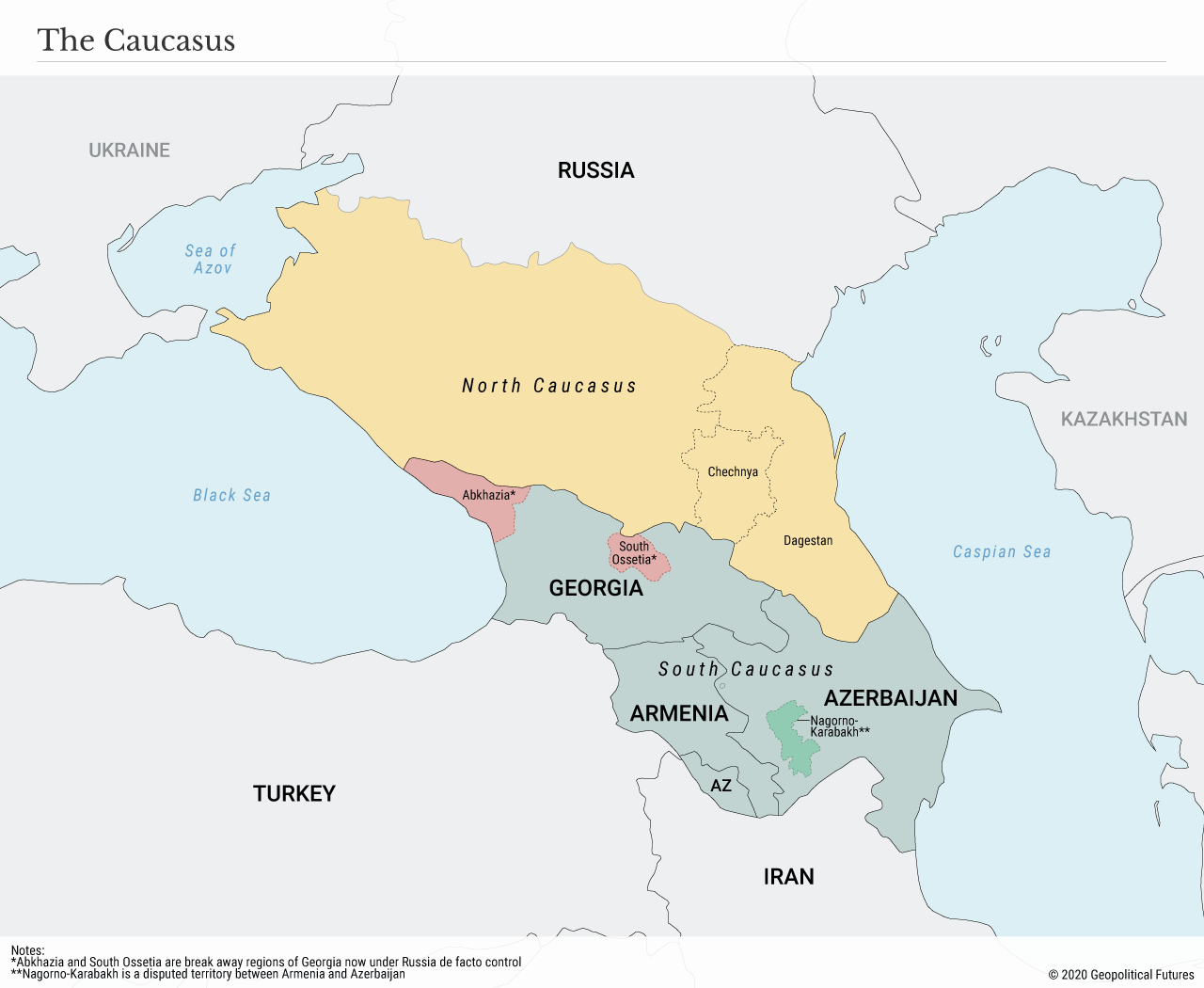Russia’s focus currently is on its western front, in Ukraine and neighboring countries. There is, however, another front that concerns Russia: its southern border, which runs along and through the Caucasus Mountains. South of the mountains lie Armenia, Azerbaijan and Georgia.
The mountains protect a strategic area of Russia. The area northwest of the mountains leads to the Sea of Azov and the Ukrainian border near Donbas, which has been heavily contested over the years. To the northeast is the Volga River and the historical city of Stalingrad, now called Volgograd. The land north of the mountains is flat, and from Astrakhan to Crimea is about 550 miles (885 kilometers). An attack on Russia from the south would have a decided effect on Russia’s ability to execute the war in Ukraine and, in the long run, could sever critical rivers such as the Volga and the Don. Therefore, protecting the Caucasus from penetration by any hostile force is vital.
For Russia, it is imperative that it penetrate the North Caucasus. It is almost as important as Ukraine. From the mid-1990s to the 2000s, Russia and Chechnya fought an intense war, which was an element in the rise of Vladimir Putin. Russia’s victory helped shape Putin’s thinking about borderlands. Russia also fought a war with Georgia, which had received U.S. military support.
Recently, Azerbaijan sent forces to occupy an area between itself and Armenia. Armenia is relatively poor, while Azerbaijan is rich in oil. The two countries have been hostile toward one another since independence, with tensions focused on Nagorno-Karabakh, a small region with an ethnic-Armenian population but officially part of Azerbaijan. The strategic interests are unclear, but the political issue is intense.
Historically, Russia has supported Armenia, even when trying to mediate. This has shifted. The Americans entered the region – first by supporting Georgia, and then by maintaining a careful (on both sides) relationship with Azerbaijan, but always keeping distance from Armenia. However, a new Armenian government was elected a few years ago that was cautious about the Russians. In the course of the war in Ukraine, the U.S. decided to enter into much closer relations with Armenia, which welcomed the Americans as a counterweight against Azerbaijan. But with Russia no longer a threat, and the United States lacking sufficient military force in the region, Azerbaijan occupied Nagorno-Karabakh.
This does not change the reality on the ground, but it does indicate that a level of tension and even conflict is emerging. The Russians have a substantial peacekeeping force in the region that has been quiet but could conceivably act against Armenia or, with reinforcements, revive the Georgian war. Armenia has little choice other than to negotiate a deal with the Russians or turn to the Americans. Neither choice would comfort it.
The United States wants to continue holding some capability in the area to threaten to penetrate the North Caucacus, which would be a dangerous and unlikely maneuver. The Russians are not dismissing the Americans’ willingness to do the dangerous and unlikely. A war is raging in Ukraine, and the U.S. could use another card in negotiations with the Russians. On paper it is an excellent idea, but quite insane in reality. So, the question now is whether Georgia is prepared to pull closer to the United States in return for military aid, and whether Azerbaijan is willing for the same reason. But since Azerbaijan and Russia seem suddenly linked, that’s not going to happen. Russia seems to have secured the Caucasus and turned the unlikely into the unthinkable. The U.S. has Armenia, which does not give it much credibility. Therefore, Russia has sealed, for now, its southern border.





 Special Collection – The Middle East
Special Collection – The Middle East